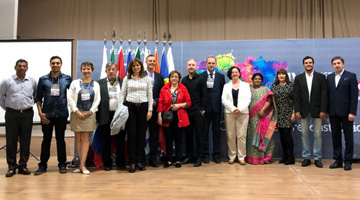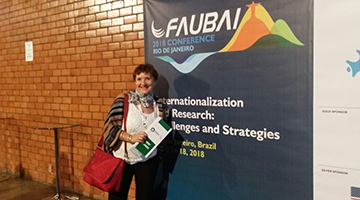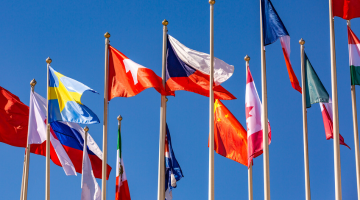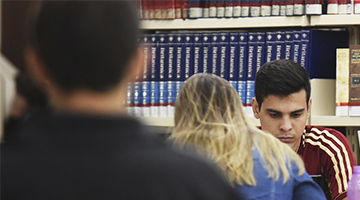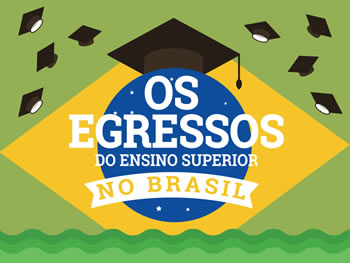Em artigo publicado na coluna World View do portal Inside Higher ED, o vice-presidente, Celso Niskier, o diretor executivo, Sólon Caldas, e a consultora de parceria internacional da ABMES, Lioudmila Batourina, falam sobre a difícil situação na qual vive a educação superior brasileira. Eles afirmam que em períodos de crise o orçamento da educação não deve ser considerado uma despesa, pois experiências internacionais mostram que poupar na educação prejudica toda uma geração e uma geração mal educada é um preço muito caro para uma economia emergente.
O texto cita as novas regras do Fundo de Financiamento Estudantil (Fies), que atingem diretamente os jovens e suas famílias, principalmente as de baixa renda. Os autores mostram que os resultados de exames nacionais dos últimos cinco anos apontam um alto crescimento de qualidade, redução estável nas taxas de desistência e aumento do número de programas classificados como “cursos de excelência” no setor particular de educação. Para eles, isso é uma conquista significativa, considerando que o custo de um estudante em uma instituição pública é normalmente três vezes maior do que em uma instituição privada. O artigo também destaca que o país espera as novas eleições presidenciais, que acontecerão em outubro deste ano (2018), traga decisões positivas sobre os programas sociais e questões de qualidade nos setores público e particular.
A publicação também afirma que o país precisa ser competitivo em pesquisa, principalmente a provida pelo setor público, e fornecer uma força de trabalho instruída com contribuição de instituições privadas.
Esta é a segunda vez que a ABMES publica artigo em um periódico internacional de prestígio, contribuindo para o avanço do conhecimento na área da educação superior mundial. Inside Higher Ed. The World View é um blog do Centro de Educação Superior Internacional da Universidade de Boston (EUA) e é o portal de comunicação rápida da famosa revista no campo da Educação Internacional International Higher Education.
Clique aqui para conferir o documento original.
Confira a seguir a íntegra do texto (em inglês):
Student Loans in Brazil: Investment or Expenditure?
Celso Niskier is vice-president of Associação Brasileira de Mantenedoras de Ensino Superior(ABMES) and rector of Centro Universitário Carioca (UniCarioca).
Solon Hormidas Caldas is executive diretor of ABMES.
Lioudmila Batourina is a consultant for international partnerships at ABMES.
Lost generation as a price
A 2017 World Bank report, “A fair adjustment - analysis of the efficiency and equity of public spending in Brazil” (Um Ajuste justo - análise da eficiência e equidade da gasto público no Brasil), reported highly inefficient national spending, including the education budget and suggested that almost 50% of public resources could have been saved. The report by economists and based mainly on the pre-crises data intended to find ways to save money, used the term “efficiency” in terms of cost but not quality. Meanwhile the quality of education in Brazil remains a serious problem. Therefore recommendations “to reduce teachersbecause the inefficiency is mainly related to an excessive number” and the use of the word “expenditure” by both Minister of Finance and Minister of Education in regard to the educational budget caused a storm of criticism from the society insisting that funds spent on education represent an investmentand not an expenditure. Concerns for the future of public universities, fully maintained by taxpayers, also extended to private HEIs facing new realities.
Brazil is on the cusp of the big social changes. The government is working on a list of unpopular actions to tackle the current economic crisis. In the nearest decade, Brazil might have to move towards charging fees for public education, even if that means a change in the Brazilian Constitution. Many educational services will probably be commercialized as well. The Fies (student loan) program will be applicable to both public and private HEIs if the publics begin to charge fees. It will likely shake the status of many HEIs and cause some closures in both camps. Hard to accept, but the quality of education will move to the second plan until the end of the crises. The budget for science and internationalization will be reduced and many institutions will be obligated pursue new sources of funding in order to conduct research. The replacement of the US$ 2 billion, “Science Without Borders” program with the US$ 90 million “PrInt Program” is a good example, but also reduces international opportunities significantly. Internationalisation in private HEIs, however will continue to grow because they’re used to doing that on their own budget.
Desperate times need desperate decisions. What makes Brazilians worry is that after the crises it is unlikely that the country will resume pre-crises social programs. International experience shows that the price of a crisis is often a generation lost. One poorly-educated generation is too expensive price for the emerging economy.
Brazilian education has a unique public/private ratio with only 28 % of all students attending public universities (MEC, 2016). The majority of the enrollment at free, public institutions are generally from richer, highly-educated families. They are mostly graduates of expensive, private primary and secondary schools. Teachers best try to get jobs in this sector because of better salaries and smaller classes. Public schools are free, but the quality of education is poorer.
Although enrollments in HEIs have been increasing in Brazil, access to this level of education remained highly inequitable due entry requirements. In 2002,only 4% of university students came from the poorest 40% of the population. By 2015 participation from this economic sector grew to 15%. In effect, students from the wealthiest families benefit disproportionately from public money while students from poorer sectors take out loans to study at private universities.
Keeping in mind that the knowledge level of students upon admission at private universities is generally lower than at public, it is interesting that last five-years of results from national examinations show impressive growth in terms of quality, stable reduction in drop-out rates and increase of the number of programs classified as “excellence courses” in the private sector. It is a significant achievement considering that the cost of a student at public university is normally three times higher than what the student pays at a private institution.
Education program or banking survival?
Two waves of enrolment growth in Brazil have been driven by public programs—“University for All” (ProUni), and the “Student Loan Fund” (Fies), allowing millions of young people access to private universities. Since January 2018, access to Fies funding was reformulated, creating new gaps. Previously, Fies had a clear social objective, permitting access to more than 700 thousand young people with the government in the role of a bank offering a practically zero interest rate. Fies 2018 has been restricted to 100 thousand government loans. The gap will be handled from commercial banks with high interest rates.
The reformulation of the Fies program does not consider the real challenges facing students, but only financial return. Fies should not be seen as a financial market product, but as an investment in economic growth. The concern should be for the long-term prospects of Brazil and not a short-term view of the financial market.
New Fies policies were widely discussed in the country. Many people saw it as a program of support to banks to help them weather the economic crisis. There were even calls to boycott Fies with the claim that it takes the country back decades and diminishes previous achievements. Nevertheless, private HEIs jointly condemned calls for a boycott because it was an important public policy program.
Dum spiro spero – While I breath I hope
Traditionally in Brazil important decisions are left for the new president. Until then all legislative activities, including in education, are frozen in the country. Even universities postpone important decisions, from budget to hiring professors. A new government may change the course of the country. Due to the current lack of policy in the area of education and social programs, HEIs are waiting for the presidential election in November 2018. They hope for positive decision on social programs, on issues of quality in both the public and private sectors. The country needs to be competitive in research, mainly provided by the public sector, and in providing an educated labor force, a major contribution of private institutions.







